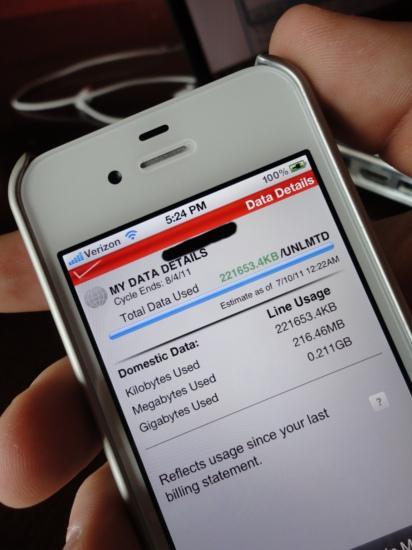
The days of unlimited data are quickly coming to an end. Much like calling plans, data is the new “minutes” and where all of the demand is. To earn more money and to lift some of the stress off of their networks, wireless providers have started to replace unlimited data plans with tiered data.
This is only the beginning of the transition. Many believe that these capped plans will begin to flourish and take a similar path as minute plans before them have. For instance, rather than just having four or five different data plans, there will be a base unlimited minutes plan with a plethora of tiered data plans: 200MB, 500MB, 1GB, 2GB, 4GB, 5GB, 8GB, 10GB and maybe even a premium unlimited plan. For all we know, the whole structure may even flip; you choose your data plan first, then choose additional features as needed. Unlimited voice calling could eventually turn into an optional feature, much like messaging plans are now.
Only one thing is certain; tiered data is here to stay.
Despite what will become of these limited data plans though, they will always come with one major side effect: the constant need to monitor and manage your data usage. This especially becomes a task when you consider that the much faster 4G networks are launching by the dozens each month. With social networking, mobile media consumption and faster speeds on the rise, it is way too easy to get carried away and surpass your allotment.
Sure, some carriers offer ways to monitor your data use online and through mobile apps. But there is lag time between the actual data use and it showing on the data counter online. For instance, I checked my usage before I went to sleep last night (after a day of streaming music, uploading several pictures and tweeting) and the counter read roughly 150MB. I checked it again after waking up and it read roughly 220MB. I obviously didn't use 70MB while sleeping – well, I don't think I did. It simply took several hours for my usage to update accordingly (notice the difference in timestamp above "Line Usage" and the actual time on the phone).
This lag time, I'm sure, has been the culprit to many users' overages. You check online to see how much data you have consumed this month. You find you have 100MB left, so you decide to upload some files to Dropbox while on 4G since you won't be home for a few hours. Unbeknownst to you, that 100MB remaining was a day behind. You have now exceeded your data cap, effectively costing you an extra $10 that could have been avoided had the appropriate tools been provided.
Judging data usage is much more difficult than judging how many text messages or minutes you will use in a month. Text messages and voice calling minutes are easily quantified and – if you are near your limit – it's fairly easy to stop using those features. It isn't always so cut and dry with data consumption. One website may be more resource intensive than another and each click could use five times as much as opening another site's page in your browser. Downloading applications and watching videos can also quickly eat away at your allotted data faster than you intend. Every single aspect of data use is subjective and it varies greatly between each user.
If carriers are going to place caps on data without compromise, users should at least be given a fighting chance at avoiding overage fees. We all should be equipped with the tools necessary to stay within our limits like a frequently updating (every 5-10 minutes) data usage counter or a block code that automatically shuts data off when a user reaches their cap. Real time text or email alerts should also be sent when you are nearing your cap, not a day behind.
T-Mobile, for one, has implemented severe data throttling for when you reach your cap. Therefore, you can still use data when you surpass your limit, but surfing will be painstakingly slow and you are not charged extra for it. Hopefully it's only a matter of time before others follow suit. What say you, guys and gals? Should carriers be a little more mindful of their customers' wallets? If they're going to charge outrageous prices for tiered data, shouldn't they at least help us avoid those steep overage fees?